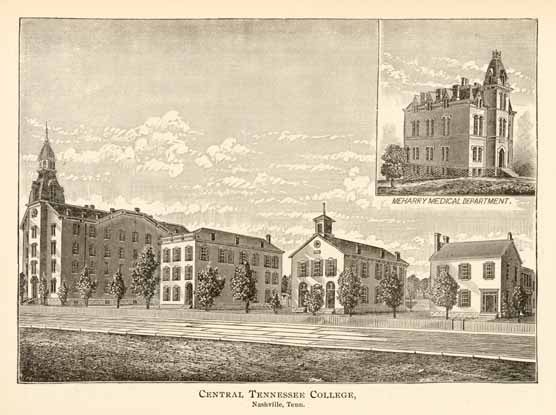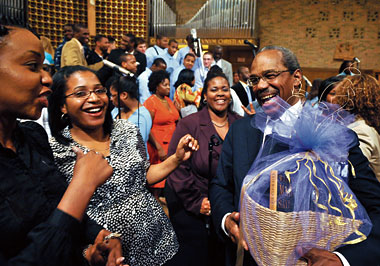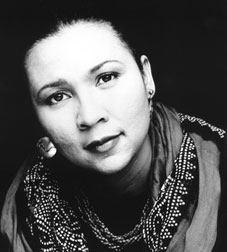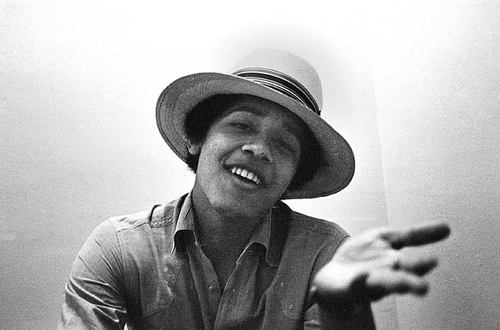
Caller: Umm, well there were two larger men, one looked kind of Hispanic, but I’m not really sure. And the other one entered and I didn’t see what he looked like at all. I just saw it from a distance and this older woman was worried, thinking someone’s breaking in someone’s house, they’ve been barging in, and she interrupted me, and that’s when I had noticed. Otherwise, I probably wouldn’t have noticed it at all, to be honest with you. So I was just calling ‘cause she was a concerned neighbor, I guess.
— Lucia Whalen to the 911 dispatcher who alerted Cambridge police to a possible burglary at the home of Henry Louis Gates (from The Boston Globe)
***
With today’s release of the exact content of Lucia Whalen’s 911 call, assertions that Gates and the rest of the U.S. Black community (including our Chief Executive) have overreacted and falsely “played the race card” have reached a fever pitch. I certainly hope that that today’s revelation of the content of that call does not completely derail what might well have been a productive national dialogue around race and law enforcement in the U.S.
That said, I must acknowledge my error in casting Whalen as the catalyst in the racially fraught encounter between Gates and the Cambridge police. I regret any hurt or inconvenience that my comments may have caused Ms. Whalen. She probably did not intend to launch the tempest stirred up by her effort simply to come to the aid of an “older woman [who] was worried.” In fact, based on the 911 transcript, two things seem to be true:
- Lucia Whalen reserved judgement about the events that she witnessed, remaining (admirably, I would say) non-commital about whether or not a crime was even taking place and whether or not the men who entered Gates’s house might well have been residents who were simply having trouble with their key.
- The true instigaor of the call was an elderly female neighbor of Gates, who may or may not have been motivated by her perceptions of Black men/men of color.
The motivations of this neighbor, however, are the the subject of this blogpost. Lucia Whalen’s 911 calls suggests that she was more unsure of the race of the perceived burglars and — most importantly — less sure that an actual crime was being committed than the first week of reporting on the Gates arrest seemed to indicate. Although her description of the (I’ll call them) suspects as two larger men seems to contradict what we now know to be the reality of what she actually saw, the text of her 911 call makes clear that she was very open about being unclear about the implications of what she and the neighbor had actually seen.
Of course, some questions do remain. For example, if Lucia Whalen seemed uncertain of both the race of the possible burglars and whether or not a burglary was taking place at all, then one question remains: How one earth such a tentative report end up in the arrest of Professor Gates for what was eventually revealed to be no crime at all? This is a question that Black and non-Black people will probably answer quite differently. Like the racial divide between those who questioned the actions of Officer Crowley and Lucia Whalen and those who believed that their actions were justified, the perception of the justice or injustice of arresting Gates reflects two very different perceptions of law enforcement and the relationship of race to the policing of Black men.
This is why I say that the revelations of Ms. Whalen’s 911 call will mean everything and nothing. For those who believe that the outcry by many (not all) Black people over the events surrounding Gates’s arrest are just another example of Black peoples’ overreaction to issues related to race, then the fact that Whalen seems not to have initially identified the race of her assailants will mean everything. For Black people (and others) who feel that the arrest on the grounds of his home of an African American man who did not commit a crime simply underscores the problematic role that racism plays in interactions between Black people and the police the fact that the 911 caller did not initially name the race of the perceived burglars will mean nothing.
The reason that so many people of African descent (including Gates himself) have reacted so strongly to this encounter is because so many Black people have been accused of and even been convicted of crimes and misdemeanors that they did not commit. Some Black people have even been killed by the police for such crimes, or even in the absence of a crime. Because he is a nationally and internationally noted scholar based at one of the world’s most prestigious universities, Henry Louis Gates, Jr. was able to quickly resolve his wrongful arrest in a relatively short time (and I do believe that it was a wrongful arrest, as is any arrest for a crime that the arrestee did not commit), and without any injury to himself or others.
It is important to note, though, that very few Black people (indeed, very few people of any ethnicity) have Gates’s name recognition, education, or influence. However tempted anyone might be to dismiss the reality of racism and racial profiling by the recent revelations surround her 911 call, we must all understand that the strong reaction to what transpired between Lucia Whalen and the CPD, Officer Crowley and Professor Gates is a reflection of Black people’s fear of and anger about being treated as criminals by police and by civilian witnesses, even when they have not committed a crime.
Having followed the ongoing dialogue around these incidents on my blog and in the responses to other bloggers and journalists who have written on the subject of the Gates arrest, I have to conclude that many outside of the Black community believe that race is simply not a factor in African American encounters with law enforcement. Specifically, it seems that many outside of the African American community are unaware that lurking in the back of many Black peole’s minds, in any encounter with law enforcement, is the memory of cases like those of Keith Spence, Amadou Diallo, Abner Louima, Oscar Grant, Sean Bell, Lafonso Rollins, Steven Toney, Paula Gray, and too many others to include here.
Most officers do not, of course, set out to deliberately abuse, injure, unfairly arrest, or kill Black people; and it may seem unfair for Black people to assume that any officer who approaches them is doing so because of racism. To an African American who finds himself or herself questioned by the police for a crime he or she did not commit (or in the absence of any crime at all), the motives of that officer are almost necessarily suspect.
Once could say that this is the mess that racism has wrought, and not just past racism, either. Arrests, imprisonments, convictions, and even shootings of Black people for crimes they did not commit continue to happen today. Lucia Whalen, Henry Louis Gates, Jr., and Office Crowley are learning now that their actions on that fateful afternoon did not happen in a vacuum. Rather, the actions of each of those three players in this controversial and problematic case took place against the backdrop a cultural, political, and historical matrix that clearly demonstrates that African Americans are under greater suspicion that their white counterparts.
Neither Gates, nor Crowley, nor Whalen created this larger environment of distrust; but each is now most certainly — and probably painfully — aware of its inescapable control.
Posted by Ajuan Mance










